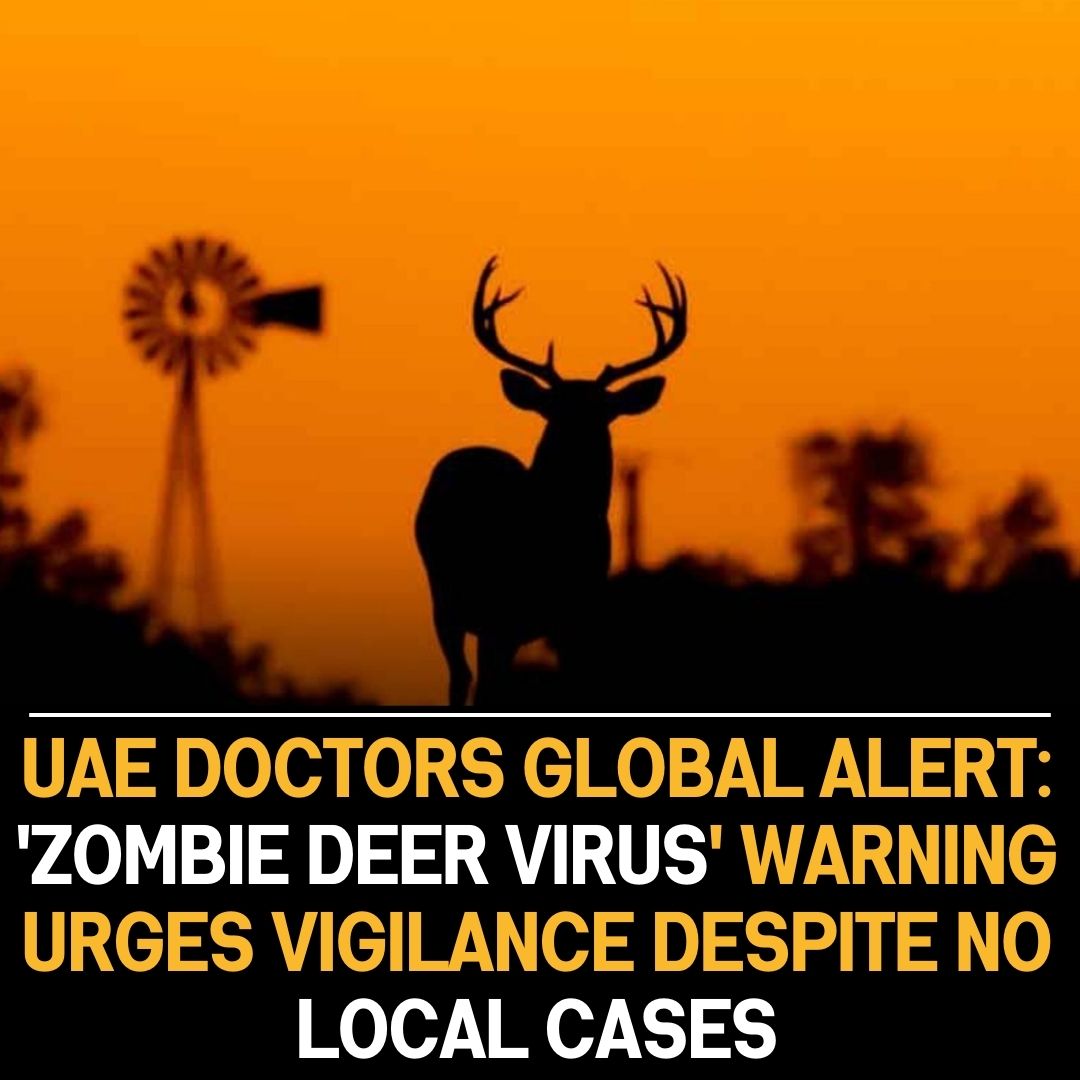In recent times, concerns have arisen globally about the spread of what is colloquially referred to as the ‘zombie deer virus,’ formally known as Chronic Wasting Disease (CWD). While the Middle East remains currently unaffected, doctors caution about potential risks of human infection as cases among animals continue to rise worldwide.
Chronic Wasting Disease primarily affects deer, elk, and moose, belonging to the cervid family. The disease has gained the ‘zombie deer virus’ nickname due to its devastating impact on the nervous system, leading to abnormal behavior, emaciation, and, ultimately, death in affected animals.
At present, there have been no reported cases of Chronic Wasting Disease in the Middle East. However, medical experts emphasize the need for vigilance, as the disease has been spreading among cervids in North America, Europe, and Asia. The potential risk of transmission to humans, though not conclusively proven, remains a cause for concern.
CWD belongs to a group of diseases known as transmissible spongiform encephalopathies (TSEs), which includes the infamous mad cow disease. While there is no direct evidence of CWD transmission to humans, the precautionary principle urges vigilance due to the similarity of CWD to other TSEs.
Doctors stress the importance of monitoring the situation and adopting preventive measures. Authorities in regions with known cases of CWD have implemented measures such as restrictions on importing cervid products and increased surveillance to detect the disease early.
The global nature of travel and trade underscores the need for a collaborative and proactive approach to prevent the potential spread of the ‘zombie deer virus.’ Health agencies and veterinary organizations across borders are urged to share information and best practices to mitigate the risks associated with CWD.
Research on CWD, both in terms of its transmission dynamics among animals and potential risks to humans, remains ongoing. The scientific community is working to better understand the disease, its variants, and the factors influencing its spread, providing a foundation for informed decision-making in public health.
While the Middle East remains a region unaffected by the ‘zombie deer virus’ to date, the awareness of the disease’s existence and potential risks is vital. Implementing preventive measures, enhancing surveillance, and promoting international collaboration are essential steps in safeguarding public health and the well-being of wildlife in the face of emerging infectious threats.

